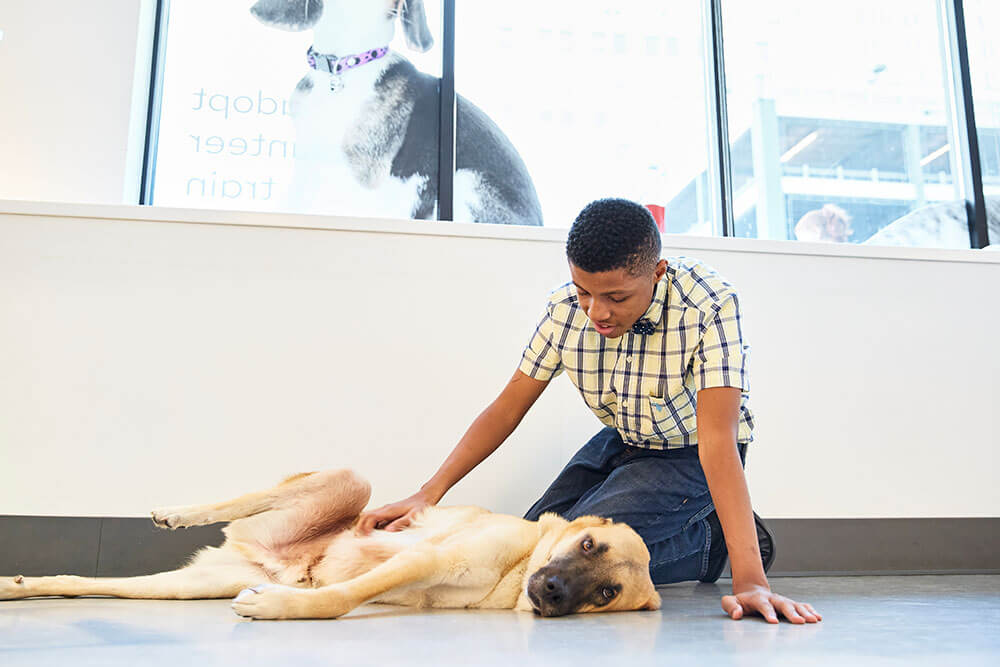How to find disability support in Australia

If you or a loved one has a disability, you’ll understand the ongoing costs of accessing the appropriate support services. We have a world-class medical system, but out-of-pocket or gap expenses can add up. Plus, there are extras, such as therapy and specialist aids to enhance quality of life.
For the 5.5 million Australians living with a disability, finding continued financial assistance is a constant life pressure. No two disability journeys are alike, which is why it’s important to know what options are available to you.
That’s why we’ve researched the different types of disability support in Australia, so you can seek the right financial assistance.
Disability support in Australia
Australia’s government schemes and pensions aim to provide a wide variety of financial support for people with disabilities. Here are some of the services available to you.
National Disability Insurance Scheme
The National Disability Insurance Scheme (NDIS) was rolled out in 2016 and supports Australians with a disability and their carers. The NDIS works with people to provide personalised financial support to help them achieve their goals, supporting over 500,000 Australians with a disability.
The NDIS covers a wide range of disability support services, which are usually delivered by a service provider. This includes:
- Daily personal activities.
- Transport to enable participation in daily life activities.
- Workplace assistance to allow a participant to successfully get or keep employment.
- Therapeutic services.
- Help with household tasks.
- Help to a participant by skilled personnel in aids or equipment assessment, set up and training.
- Home modification design and construction.
- Mobility equipment and vehicle modifications.
Of those 500,000 Australians, they support approximately 80,000 children with developmental delay, ensuring they receive assistance quickly to achieve the best outcomes throughout their lives.
Once a person has been assessed and deemed eligible for the NDIS, an individualised plan will be drawn up based on discussions in a planning meeting.
Disability Support Pension
People with a disability can face unique challenges when it comes to employment and financial security. Fortunately, the Disability Support Pension (DSP) provides financial support to people over the age of 16 with disabilities that prevent them from working. This pension is a payment for people who meet the medical and non-medical work conditions, allowing them to pay for essential living costs.
There is also a Disability Employment Services (DES) programme that helps people to find and keep a job if they have a disability, illness or injury. A DES provider can help someone get ready to work, develop specific job skills, prepare them for interviews, search for jobs, offer on-the-job training and provide ongoing support.
Other Australian government support
There are also some other disability support options available to you courtesy of the Australian government. Additional financial support programmes include:
- Carer payment: A payment if you give constant care to someone with a disability, medical condition or an adult who’s frail aged. Carers Australia is an excellent resource for advice and guidance.
- Carer allowance: A supplementary payment if you care for someone who needs daily support. As a carer, you may also be eligible for a National Companion Card.
- Mobility allowance: If you can’t use public transport due to a disability, illness or injury, this payment helps with travel costs for work, study or looking for work.
- Youth Disability Supplement: An extra payment if you’re a young person with a disability and on an income support payment.
- JobSeeker Payment: Financial help if you’re between 22 and Age Pension age and you’re too sick or injured to do your usual work or study for a short time.
For more information about government services to help people with a disability, their family, friends and carers, check out the Disability Gateway.
Fundraise for disability support
In addition to government assistance, many people with disabilities rely on other forms of financial support to meet all their goals, like personal fundraising. Whether it’s a one-off fundraiser or ongoing support from benefactors, there are many ways to fundraise to provide financial support for someone with a disability.
If you are fundraising for something in particular, you could set up a community event like a bake sale or trivia night. It’s a great way to get friends and family involved in raising money for disability support, whether it’s funding a new wheelchair or therapy sessions.
You can support a cause close to your heart with an online fundraiser that’s easy to share with your network. Fundraising platforms, such as GoFundMe, are a reliable and safe way to get donations. You can easily share the fundraiser on social media, email or messenger apps and funds are sent directly to your cause.
Start fundraising for disability support with GoFundMe
Crowdfunding is one of the easiest and most effective ways to get financial help for disabled people in Australia. It’s easy with GoFundMe – simply sign up and share your story.
It’s always more effective if you ask for what you need rather than a vague fundraising goal. Break down the costs and share with people how their money will help someone’s quality of life or treatment.
Setting smaller, more realistic goals is one way you can get to your fundraising goal much faster. By sharing as much as you can through photos and stories, people will be captivated by your story and more likely to donate money to your fundraiser. We’ve even collated a tonne of fundraising tips online for those in need of support or inspiration.
No matter your fundraising goal, you can kick-start your fundraising ideas in just a few clicks. Set up your GoFundMe today and raise funds for disability support.